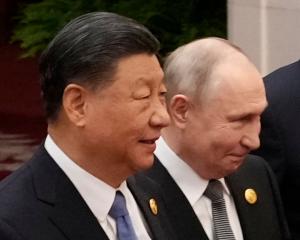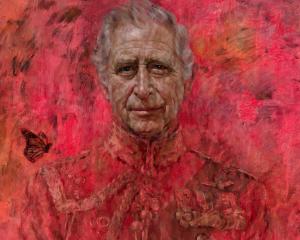Britain's Boris Johnson should be excluded from parliament for wilfully misleading MPs over rule-breaking Covid-19 lockdown parties at his office, a committee says, in a damning report the former leader described as "rubbish".
In a more than 100-page report made public on Thursday, the privileges committee - the main disciplinary body for MPs - said Johnson had wilfully mislead parliament on several occasions when he was asked about Downing Street gatherings during Covid lockdowns.
The committee also accused Johnson of being "complicit in a campaign of abuse and attempted intimidation".
Johnson, one of Britain's most well-known and divisive politicians, shot back, repeating his innocence and condemning the report as "rubbish", "a lie" and "a charade", and accusing committee members of waging a vendetta against him.
In the report which details six events held at Downing Street, the committee, which has both members from the governing Conservatives and opposition Labour Party, said: "We conclude that in deliberately misleading the House Mr Johnson committed a serious contempt."
"We recommend that he should not be entitled to a former Member’s pass," it added, referring to a pass which enables former Prime Ministers to gain access to parliament.
The Committee found that Johnson sought to undermine the parliamentary process by deliberately misleading the House of Commons and the Committee, by breaching confidence, impugning the Committee and by being complicit in a campaign of abuse and attempted intimidation.
It said that were Johnson still an MP, it would have recommended a suspension from the House for 90 days.
Johnson resigned from parliament last week after seeing an advance copy of the report, calling the inquiry a "witch hunt", a criticism he double-downed on after its publication.
"I believed, correctly, that these events were reasonably necessary for work purposes. We were managing a pandemic," he said in a statement.
"But don’t just listen to me. Take it from the Metropolitan Police. The police investigated my role at all of those events. In no case did they find that what I had done was unlawful."
Main findings
The main findings from the report into Boris Johnson's behaviour:
JOHNSON DELIBERATELY MISLED PARLIAMENT
The committee said: "We conclude that when he told the House and this Committee that the rules and guidance were being complied with, his own knowledge was such that he deliberately misled the House and this Committee."
JOHNSON WOULD HAVE FACED A 90-DAY SUSPENSION FROM PARLIAMENT
The Committee said it would have recommended a suspension of 90 days from the House of Commons for Johnson if he had not resigned.
The committee said: "if he had not resigned his seat, we would have recommended that he be suspended from the service of the House for 90 days for repeated contempts and for seeking to undermine the parliamentary process".
UNPRECEDENTED BEHAVIOUR FROM A PRIME MINISTER
The committee said: "We have concluded above that in deliberately misleading the House Mr Johnson committed a serious contempt. The contempt was all the more serious because it was committed by the Prime Minister, the most senior member of the government. There is no precedent for a Prime Minister having been found to have deliberately misled the House."
JOHNSON WAS DISINGENUOUS
The committee said: "We came to the view that some of Mr Johnson’s denials and explanations were so disingenuous that they were by their very nature deliberate attempts to mislead the Committee and the House, while others demonstrated deliberation because of the frequency with which he closed his mind to the truth."
ATTACK ON COMMITTEE WAS A FURTHER CONTEMPT OF PARLIAMENT
The committee said: "This attack on a committee carrying out its remit from the democratically elected House itself amounts to an attack on our democratic institutions. We consider that these statements are completely unacceptable. In our view this conduct, together with the egregious breach of confidentiality, is a serious further contempt."
JOHNSON SHOULD BE DENIED PARLIAMENT PASS
Former members of parliament are normally entitled to a pass that gives them access to parliamentary estate.
The committee said: "In view of the fact that Mr Johnson is no longer a member, we recommend that he should not be granted a former member’s pass."
TWO MEMBERS OF COMMITTEE WANTED JOHNSON TO BE EXPELLED FROM PARLIAMENT
Two members of parliament on the committee - one Labour and the other from the Scottish National Party - wanted Johnson to be expelled from parliament. But the final report and sanction was signed off unanimously by all seven members.
SIX EVENTS
The committee listed six events in Downing Street where lockdown rules were not observed and concluded that Johnson could not have believed that these were “essential for work purposes”.
The report said it is “unlikely on the balance of probabilities that Mr Johnson, in the light of his cumulative direct personal experience of these events, could have genuinely believed that the rules or guidance were being complied with”.













